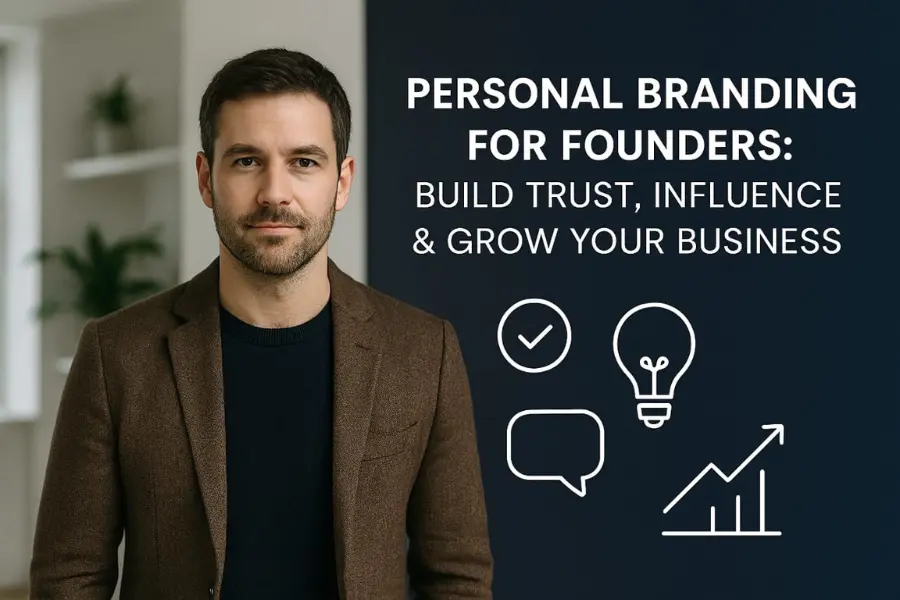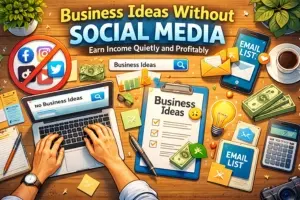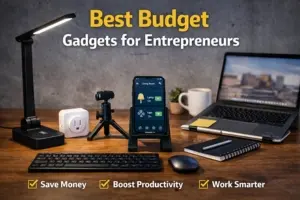Personal Branding for Founders: Build Trust, Influence & Grow Your Business
Updated: 28 Jan 2026
Personal Branding for Founders
In today’s hyper-connected world, people don’t just buy products—they buy stories, trust, and the people behind the brand. As a startup founder, building your brand isn’t a luxury; it’s a necessity. A strong personal brand can attract customers, investors, talent, and media attention. It helps you stand out in saturated markets and forge real human connections that drive growth.

What is Personal Branding and Why Does It Matter for Founders?
Personal branding is the practice of marketing yourself and your career as a brand. For founders, it’s about presenting a clear, authentic image that communicates your values, vision, and leadership style. Unlike a corporate brand, a personal brand is built on who you are—your story, experiences, and mission.
Founders like Elon Musk, Richard Branson, and Melanie Perkins have become icons not just because of their companies but because of the personal brands they’ve cultivated. Their stories build trust and differentiate them in a crowded marketplace.
Key Benefits of Building a Personal Brand as a Founder
- Builds Trust and Authenticity: People trust people. Your transparency and values make others feel connected to your mission.
- Increases Visibility: A personal brand makes you more discoverable across digital platforms.
- Attracts Investors and Opportunities: VCs often invest in founders, not just ideas.
- Position You as a Thought Leader: Sharing insights builds credibility and authority.
- Humanises Your Startup: You put a face to your business, making it more relatable.
Steps to Build a Powerful Personal Brand as a Startup Founder
Define Your Core Values and Mission
Before branding yourself, get clear on what you stand for. What values drive your business decisions? Your mission should align with your company but reflect your unique perspective.
Identify Your Target Audience
Who do you want to connect with—customers, investors, media, potential team members? Your content and communication style should resonate with them.
Tell Your Story Authentically
Every founder has a journey. Share yours—the wins, the failures, the lessons. Authentic storytelling helps people relate to you and root for your success.
Be Present and Active Online
Use platforms like LinkedIn, Twitter/X/X, and Medium to share thoughts, company updates, challenges, and advice. Regular posting keeps you top of mind.
Create a Consistent Visual Identity
Have professional photos, brand colours, and a clean bio. Visual consistency across platforms builds recognition and trust.
Engage with Your Audience
Respond to comments, participate in discussions, join events, and do interviews. Branding isn’t one-way; it’s a conversation.
Top Channels for Personal Branding as a Founder
- LinkedIn: Ideal for B2B visibility and professional credibility.
- Twitter/X: Great for short-form thoughts, trends, and real-time engagement.
- Medium/Substack: Share long-form content like startup lessons or industry analysis.
- YouTube/Podcasts: Create a stronger personal connection with audiences through video/audio.
- Speaking Engagements: Conferences and podcasts help boost your authority.
Mistakes Founders Make with Personal Branding (And How to Avoid Them)
- Being Too Promotional: Focus on adding value, not just pushing your product.
- Not Showing Vulnerability: Authenticity matters more than perfection.
- Inconsistent Messaging: Be clear and consistent about your values and mission.
- Ignoring Feedback: Your audience’s reactions are insights—listen to them.
- Copying Others: It’s okay to be inspired, but your voice must be uniquely yours.
Case Studies: Successful Founder Brands
- Gary Vaynerchuk: Built his brand through consistent value sharing and high-energy videos.
- Sophia Amoruso: Leveraged storytelling and honesty to create a cult following.
- Ben Francis (Gymshark): Used transparency and behind-the-scenes content to build trust.
Personal Brand vs Company Brand: Which One Leads?
Both are essential, but your brand often leads the way. People connect with a human face before they connect with a logo. A strong founder brand can lift your company brand and vice versa.
Think of Steve Jobs and Apple—his charisma and vision played a huge role in Apple’s identity.
FAQs
Here are some detailed questions and answers on “Personal Branding for Founders.
Personal branding for founders is the process of establishing a public persona that reflects a founder’s values, vision, and leadership style. Unlike corporate branding, which focuses on products and services, personal branding centres around the individual. It’s about building trust and relationships by sharing the founder’s story, experiences, and mission—something that humanises the startup and connects emotionally with the audience.
In the early stages, startups often lack a reputation or customer base. Personal branding for founders helps bridge that gap by putting a relatable face to the company. Investors, early customers, and employees are more likely to engage with a founder who is visible, trustworthy, and inspiring. It builds credibility before the brand itself becomes established.
Investors don’t just invest in products—they invest in people. A strong personal brand for a founder shows leadership, vision, and resilience. By consistently sharing your story, achievements, and insights, you demonstrate competence and transparency. This builds investor confidence and makes your startup more appealing.
The core elements include:
Authentic storytelling
Clear values and mission
Consistent online presence
Visual identity (photos, colours, logo if needed)
Engagement with the audience and feedback loops
Thought leadership through content (articles, videos, talks)
These elements together form a powerful personal branding strategy for founders.
Top platforms include:
LinkedIn – for professional updates and thought leadership
Twitter/X – for trends, networking, and real-time opinions
Medium/Substack – for long-form storytelling and insights
YouTube/Podcasts – to build deeper, more personal connections
Instagram/TikTok – if visual or lifestyle branding is relevant
Each channel serves different audiences but can play a key role in personal branding for founders.
Start by:
Defining your core values and mission
Writing a strong LinkedIn bio
Posting weekly about your startup journey
Sharing lessons, failures, and behind-the-scenes stories
Commenting on others’ content to build visibility
Even without followers, consistency builds momentum in personal branding for founders.
Balance is key. Sharing personal stories helps people connect with you, but oversharing can dilute your message. Talk about challenges, lessons, and passions that tie back to your startup’s mission. Emotional intelligence and relevance should guide how much you reveal in your branding as a founder.
Top mistakes include:
Being too promotional instead of adding value
Copying others rather than developing a unique voice
Inconsistent posting or messaging
Ignoring audience engagement and feedback
Being overly curated and inauthentic
Avoiding these will make your branding as a founder more genuine and effective.
Absolutely. Talented professionals are drawn to leaders they admire and trust. If your brand shows vision, transparency, and a strong mission, people will want to work with you. It also helps you stand out in competitive hiring markets.
Personal branding for founders is a long-term strategy. With consistent effort—posting content weekly, engaging with your audience, and showing up authentically—you can start seeing traction in 3–6 months. However, building a strong reputation and influence may take years. Patience and consistency are key.
Conclusion: Why Every Founder Needs a Personal Brand
Your brand is more than just your online presence—it’s your reputation, voice, and the emotional connection people feel toward your vision. In the early stages of business, when trust and visibility are critical, your brand can be the bridge that brings your startup the attention and loyalty it needs to grow.
Start sharing your story, showing up authentically, and connecting with your audience—because your greatest marketing asset is you.
Want more business insights? Explore our latest guides on BizIdeas.net to grow smarter, faster, and bolder!
.
- For bold: [b]text[/b]
- For italic: [i]text[/i]
- For underline: [u]text[/u]





